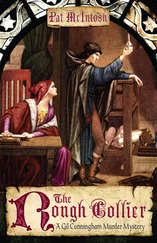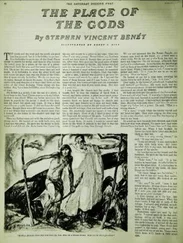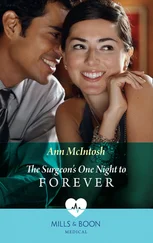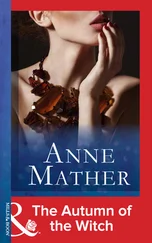The greater portion of the money went toward the next year of Evelyn’s care. As soon as I had my life somewhat back on track I went to see her. She lived in a Midtown studio apartment, in a featureless brown-brick housing complex. After I knocked at her door I could hear the creak of her wheelchair, then the door opened and before I even had a chance to step in, she leaned forward. I barely had time to crouch down to her level when she hugged me. I should really say clung to me, for it seemed long minutes before she was even willing to release me from her embrace.
She was already in her dressing gown and pajamas, so I’d almost come too late. As much as she could with her arthritis, she scrunched her knobby fingers and pressed them to her cheeks. Tears gathered in her eyes. Her words tumbled out. “I was afraid I might never see you again. I tried and tried. The hospital wouldn’t let me in. Only close relatives, they said. I called so many times. Wrote a letter even. Did you find it?” She stopped almost in mid-sentence and peered at my face. “What’s happened to you? Those marks on your face?”
“It’s nothing, Evie. Don’t worry about it. I’m here now. Everything’s fine.” I wheeled her over to the couch and sat beside her. I’m ashamed to admit this was the first time I’d been to her home. Samuel had cared for her, and when we got together it had always been on outings he’d arranged or for dinner or weekend afternoons at our place. The times he’d been away, he’d hired someone to help her out.
The apartment was cramped but neat as a pin. How she managed to keep it that way with her disability I couldn’t imagine. On a table beside the couch sat a pill box sectioned into the days of the week, a glass half full of tea, and a box of tissues. She had a small TV, radio, books, and things on a wall unit; a simple kitchen and bathroom; and a recessed area for her bed. There was one piece of fine furniture, a buffet that once belonged to Samuel. The top was crowded with framed photographs, one picture of her and Samuel, all the rest of me—the two of us walking in Central Park, me as a toddler holding a dripping ice-cream cone, school pictures from elementary through to university. That came as a bit of a surprise.
I’d made up my mind to say nothing about Hal’s game or my time in Iraq; it would only upset her. “Evie, sorry it’s taken me this long to visit you. Getting over the accident and feeling lost without Samuel took its toll. I had to deal with it in my own way.”
“You know he’s sold your place? I wanted to warn you. Samuel was going to tell you when he came back, but of course he didn’t get a chance. I begged him not to do it. It was your home but he wouldn’t listen.”
I wondered how much she knew about the whole affair. “Did he say why he wanted to sell it?”
“To help the museum. To protect its treasures. He was a good man but he went too far. He sold your birthright. That wasn’t fair.”
I smiled and said, “It’s done now and I’m managing okay.” Samuel and Evelyn had had such a long acquaintance, and I knew they’d often shared confidences. “Speaking of treasures, you remember my little casket, the one Samuel gave me on my birthday?”
“Of course. You played with it so many times.”
“Samuel once said it was part of my inheritance. But I’ve gotten to thinking. Is there anything else? Did he talk to you about my parents? Are there any photos I didn’t see? Letters? Anything like that?”
“There is nothing else.”
“It’s just, I’ve started to question … to wonder about my past in Turkey.”
In what seemed like an unconscious gesture, she rubbed her hand over her heart. “When I first came to this country I told myself, ‘You have a new chance. If you keep remembering bad things about the past they will become like demons flying around inside you. Forget them.’ That’s what I did. Don’t bring trouble to yourself by asking about these things, John. It will not help you.” She’d kept her eyes averted from me as she spoke, which was quite unlike her. Perhaps another time, if there was anything to reveal, I’d find her more forthcoming.
We talked for a while longer but she started to fade. I got her settled in for the night, dismayed to see the little huffs of breath she let out with the pain of moving off her wheelchair and getting into bed. I gave her a kiss on the forehead and said goodnight.
A few days later we visited Samuel’s grave together. The balance had shifted. The appeal of the bad-boy image had faded for me, and Samuel’s saintly aura had been modified by the very real repercussions of the disaster he’d set in motion. I was thankful for this reunion with him and for the restoration of good memories, untarnished by guilt.

I rented a small apartment in Astoria and tried to revive my business. I had limited success because the aftermath of the accident still clung to me. Once innuendo stakes out its territory, it isn’t readily vanquished by facts. Commissions dribbled in, but not fast enough. So much of the business is social. Hosting gatherings, lunches at good restaurants, dressing the part. My career looked unsalvageable unless I could magically produce some cash.
One incident gave me a ray of hope. Among my large backlog of mail was a letter I’d received from a London solicitor at a prestigious Lincoln’s Inn Fields address. It came in a plain manila envelope; curious, I tore it open. Out fell an auction house catalog and a letter addressed to me on crisp white bond from the solicitor—Arthur S. Newhouse. He’d written at the behest of his client, who wanted me to represent him at a Sherrod’s auction on October 13 to bid on a seventeenth-century manuscript. When I saw the commission— 25 percent of a purchase price estimated to reach at least a hundred and fifty thousand pounds—my jaw dropped. And an advance would be given to cover expenses.
But there was a hitch. There always was with good things coming my way it seemed. Once I’d successfully bid on the manuscript, I was on no account to attempt to read it. “Apparently the document has a repellent history,” Newhouse wrote. “This requirement is for your own protection.”
The commission would put me back on my feet, no question, but I’d learned not to trust offers until I actually saw some green. Just as I was picking up my phone to contact the London office, a call came through. Corinne on the other end. And what she had to tell me drove all thoughts about strange seventeenth-century manuscripts from my mind.
Thirty-nine

The new information Corinne had gathered sent me into a frenzy of activity. All the time not spent getting my life up and running again I devoted to this new pursuit.
My endeavors bore fruit and reached their zenith on the evening of Wednesday, September 10. I walked through the doors at 8:30 P.M., a little early for the meeting I’d arranged. The gallery was empty, but I heard a rustling sound from the office adjacent to the showroom. Soon enough Phillip Anthony emerged, shutting the door behind him.
It amused me to see his shocked expression after he set eyes on me. His mouth flapped open and shut like a barn door in a spring storm. It took him a minute to find his voice.
“Why, John,” he finally got out, “how charming to see you. This is unexpected.” He snapped out of his momentary nervousness and peered at me through his thick glasses. “What’s happened to your face? It looks like you’ve been losing at boxing matches, you poor fellow.”
“I’ve been traveling a lot, Phillip, over some rough terrain.”
Читать дальше














